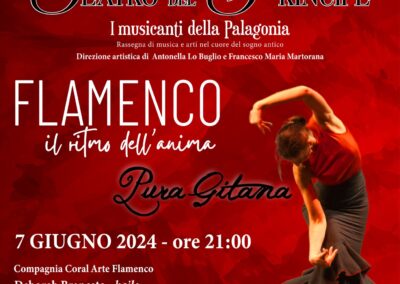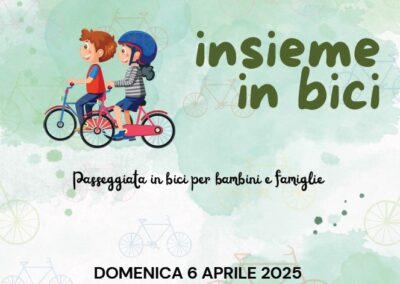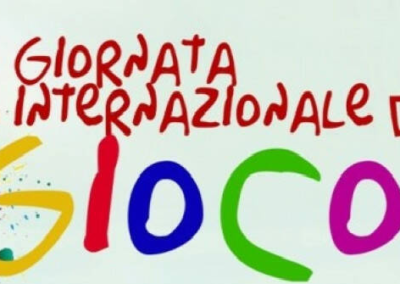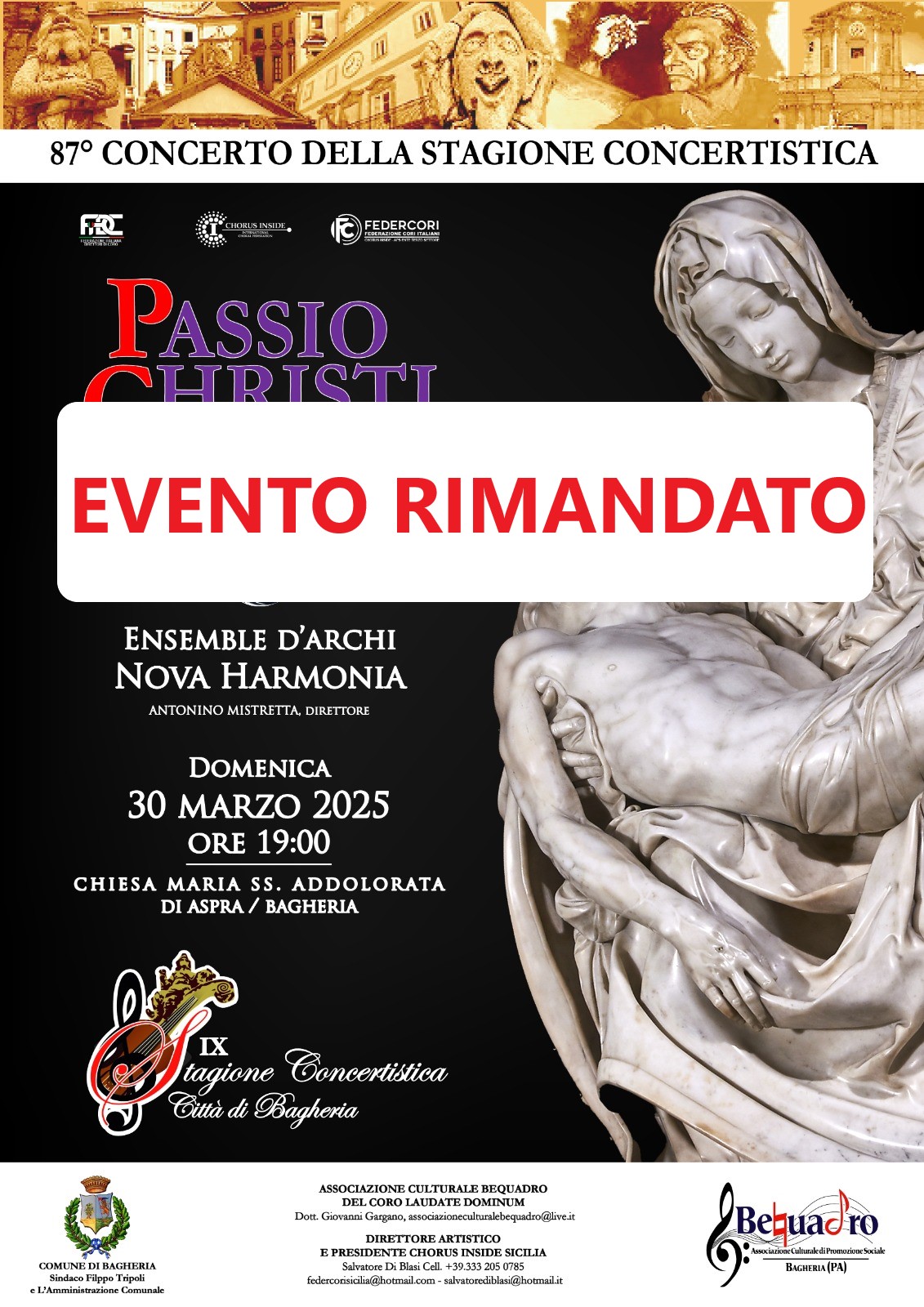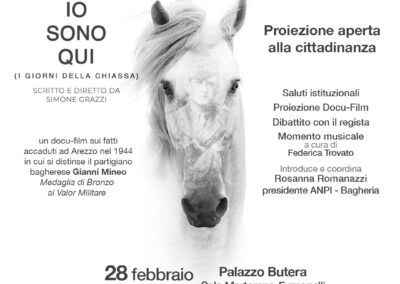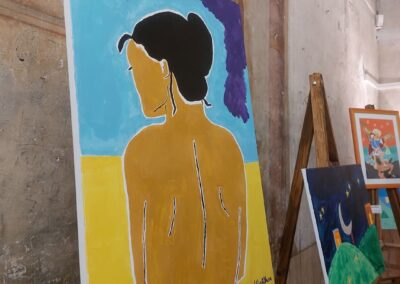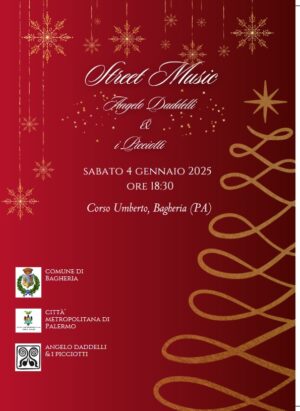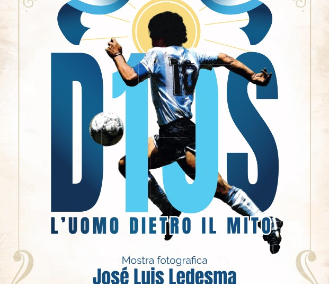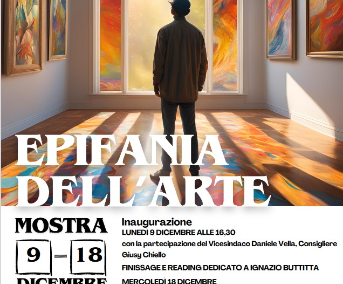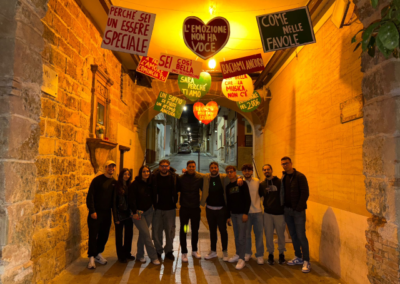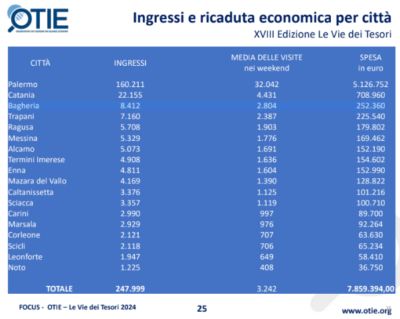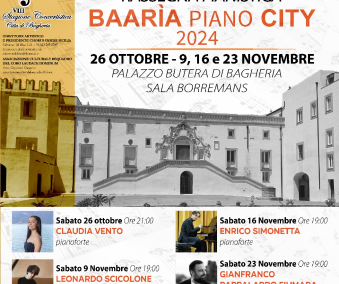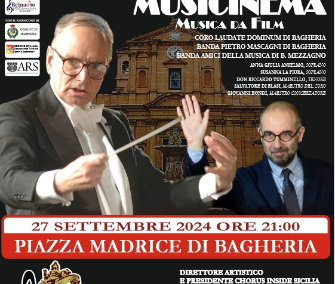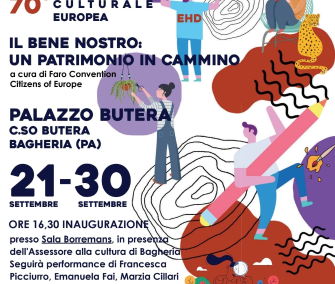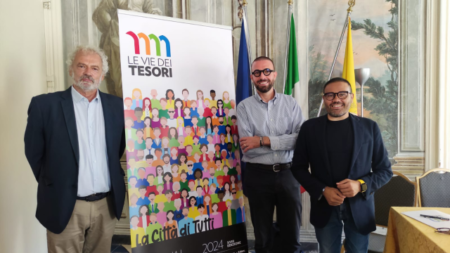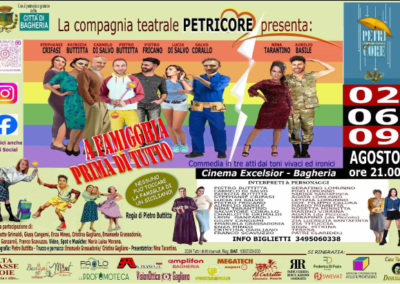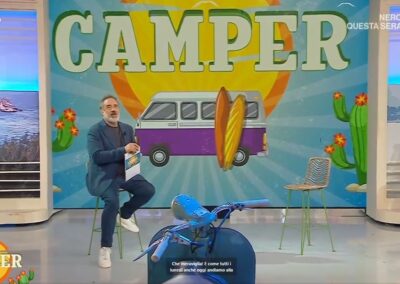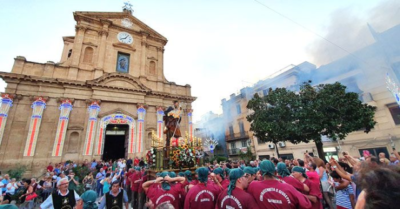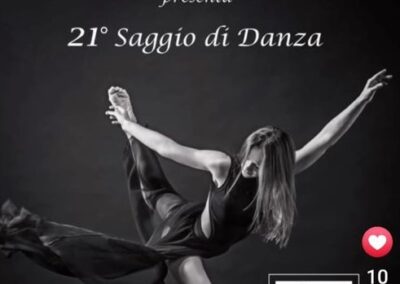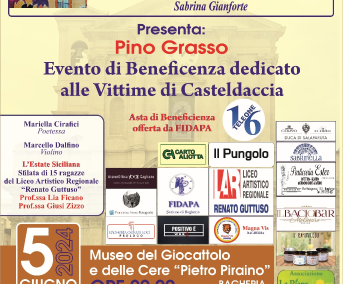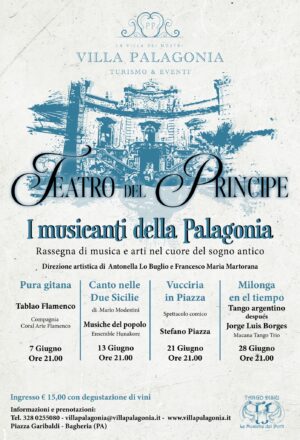Cellist Giovanni Sollima opens the 10th edition of Animaphix
New Contemporary Languages – Film Festival with “Sonámbulo”
cine-concert inspired by the works of director and artist Theodore Ushev,
who will receive the Guttuso Prize 2024.
Starting July 22-28, 2024 at Villa Cattolica
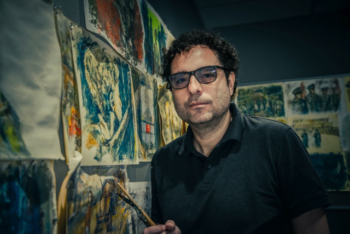
The tenth edition of Animaphix opens Tuesday, July 22, at 9 p.m. at Villa Cattolica in Bagheria (Pa), with “Sonámbulo,” a cine-concert by Giovanni Sollima, one of the greatest virtuosos of the cello and an internationally renowned composer-who will retrace the pictorial works of Bulgarian director and artist of Canadian adoption Theodore Ushev, through sounds ranging from baroque to rock, to metal, for a performance of extraordinary energy.
Admission is free while seats last.
At the same time, director Theodore Ushev will be treated to a retrospective that includes almost all of the films he has made over a quarter of a century, and will be presented with the Guttuso Prize 2024 for the large number of films produced with the technique of painting in motion.
The cine-concert “Sonámbulo”
The cine-concert “Sonámbulo,” whose title is named after Ushev’s short film of the same name, represents a vast sound canvas where the director’s works are interwoven with new compositions and adapted to the nuances of sound: it is the meeting of two versatile artists, one a “reckless virtuoso,” who embraces the history of music to the sounds of the contemporary, the other a “punk filmmaker,” with poetics made up of figurative art, music and cinema, whose metalanguage speaks directly to the art itself and to the viewer.
Theodore Ushev
The director’s continuous search for expressive forms and curiosity about everything and everywhere make him one of the preeminent figures in the animation cinema of the first quarter century of the third millennium.
The retrospective presented during the tenth edition of Animaphix includes almost all of the films he made in a quarter-century, most notably Tower Bawher (2005), a cavalcade of images and a wild ride through Russian constructivism to the music of Georgy Sviridov, from which some characteristics of his art can already be discerned, particularly his privileged relationship with music, as in the following Drux Flux (2008), a partly figurative and partly abstract short film – to music by Alexandre Mossolov and inspired by the book “One-Dimensional Man” by philosopher Herbert Marcuse -, in which the director deconstructs industrial scenes and their terrifying geometry to show the inhumanity of progress, and Gloria Victoria (2012), which takes its cue from the Leningrad Symphony (no. 7) by Dimitri Shostakovich, where a kind of conflicting admiration with constructivist aesthetics continues and deepens, resulting in a true trilogy on the relations between art and power.
Music literally takes over in Sonámbulo (2015), an independent short film inspired by Federico García Lorca’s poem “Romance Sonambulo,” which depicts a surrealist journey of shapes and colors to a frenetic tune by Bulgarian musician Kottarashky, who a few years earlier had signed the music piece on which Demons (2012) is based, a succession of Eastern European folk art scenes flowing on a vinyl record.
Even more structured and complex appear the pseudo-documentary Les journaux de Lipsett (Lipsett Diaries, 2012) made from an alleged discovery of the diaries of the ill-fated Canadian artist Arthur Lipsett, whose artistic stature has always been underestimated partly because of his whirling descent into depression and madness, until his suicide in 1986, and the more recent Physique de la Tristesse (The Physics of Sorrow, 2019), a monumental film in animated painting, perhaps Ushev’s highest artistic point to date, based on the novel by Bulgarian writer Georgi Gospodinov, who reconstructs his life story as a labyrinth, wandering through the past to find the melancholy child at the center of it all.
To further explore the work of the Bulgarian-Canadian filmmaker, Borislav Kolev’s Unseen Connections (2022), a documentary about Theodore Ushev that discusses the biographical, historical, cultural and subcultural connections that shaped him as a person and artist, will be screened.
Also presented will be the VR version of Vaysha l’Aveugle (Blind Vaysha, 2016), based on a text by Georgi Gospodinov that tells the story of a girl who sees the past with her left eye and the future with her right eye, and is therefore unable to live in the present. Viewing the film will be possible only through viewers in the Festival’s VR Zone, with which the individual viewer will have to choose whether to see the past or the future, resulting in different endings of the film.
Animaphix – Nuovi Linguaggi Contemporanei Film Festival is made possible thanks to the contribution and patronage of the Ministry of Culture – General Directorate for Cinema and Audiovisual; the Sicilia Film Commission – which operates within the Department of Tourism, Sports and Entertainment of the Sicilian Region; and the Municipality of Bagheria. With the support of the Regional Agency for Environmental Protection of Sicily (Arpa Sicilia), the Arts and Humanities Council of the Quebéc Ministry of Culture and Communications, the Quebéc Delegation in Rome, the Instituto Cervantes in Palermo, the Embassy of the Czech Republic, the Czech Center in Rome, and the Polish Institute in Rome.
“The Sicily Film Commission returns to confirm its support for the Animaphix festival, which proves for the tenth year to be one of the most innovative realities in the panorama of experimental animation cinema and New Contemporary Languages, placing the relationship between cinema and visual arts at the center of its research, with a keen eye on the latest frontiers of virtual reality applied to audiovisuals, standing out for its originality and internationalization.”
Nicola Tarantino (Director in charge Sicily Film Commission – Regional Department of Tourism Sport Entertainment Sicilian Region).
“The City of Bagheria has been committed, for some time now, to take every opportunity to promote the City, its territory, its culture, its traditions, its scenic and natural beauty and also its culinary and eno-gastronomic delights – says the mayor of Bagheria, Filippo Maria Tripoli – with this spirit and appreciating the goodness of the program, every year, now for ten years, we choose to be at the side of Animaphix, its director and creator Rosalba Colla, because this international festival offers us not only a cinematic offer of shorts with a wide European scope but also because it opens a window precisely on the many who come to the City of villas and taste to follow this now ten-year festival.”
Filippo Maria Tripoli (Mayor Bagheria).
“The tenth anniversary of Animaphix is an important event because it represents ten years of project, ten years of work, ten years of commitment to the promotion of culture and ten years of promoting the image of our city, Bagheria,” says Councilor Daniele Vella, “and of our community on the national territory and even beyond. That is why the municipal administration strongly wanted to confirm, again this year, to stand by Animaphix and its organizers for a festival that can live up to these expectations.”
Daniele Vella (Councillor for Culture – City of Bagheria).
“Animaphix celebrates its tenth edition: ten years of culture, experimentation and innovation. A festival open to the world, looking at the future not only of cinema, but of a territory. We have never lost focus on our context, rich in contradictions, but also an expression of great intelligence and foresight. When I founded this small festival I imagined its first ten years, with its path and mutations. Today, as I prepare to celebrate them, with a hint of pride, together with the people who have gone through it and strongly believed in it, I imagine the next ten.”
Rosalba Colla (Co-Artistic Director Animaphix – New Contemporary Languages Film Festival).
ANIMAPHIX – New Contemporary Languages Film Festival
animaphix.com – associazione.qb@gmail.com
EVENTS CALENDAR
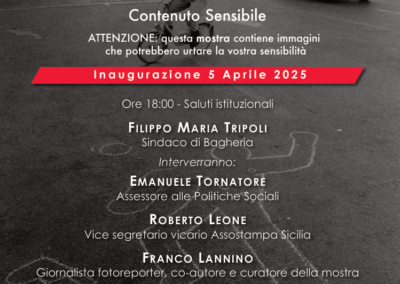
Bagheria hosts “Macelleria Palermo”: a photographic exhibition to not forget the years of lead of the mafia – From 05 to 15 April 2025
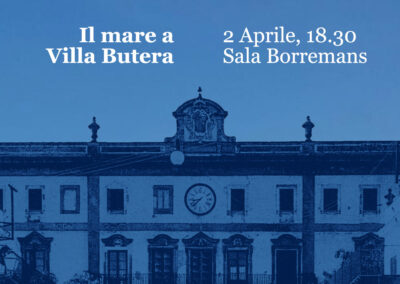
The Sea at Villa Butera: Presentation of the Interview Report on the Sea of Bagheria and the Cala dell’Osta regeneration project – Wednesday 2 April 2025

Bagheria in the running to become Innovation Capital 2025: an opportunity for the territory – The official poll from 24 to 30 March 2025
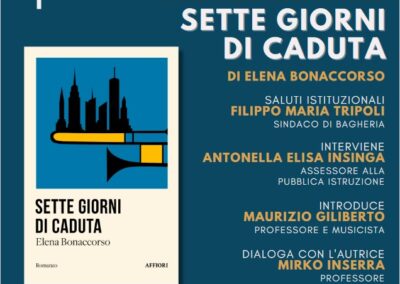
‘Sette giorni di caduta’: presentation of Elena Bonaccorso’s book at Villa Butera – Wednesday 26 March 2025
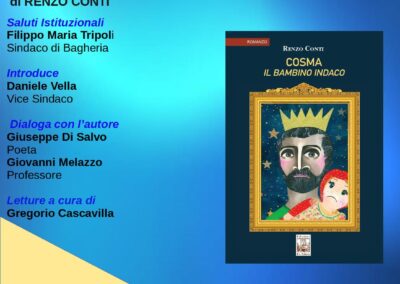
Presentation of the novel ‘Cosma, the Indigo Child’ by Renzo Conti at Villa Butera – Friday 21 March 2025

Bagheria celebrates its ‘MasterChef’: Gianni Marino honoured by the municipal administration – Sunday 9 March 2025
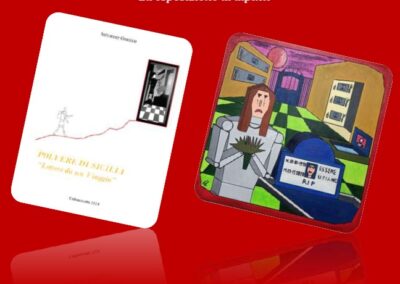
Sotir in Bagheria. ‘Memories of shreds of life’ Presentation of the new volume written by Salvatore Gumina entitled: ‘Dust of Sicily. Letters from a journey’. And exhibition of paintings – Saturday 15 March 2025
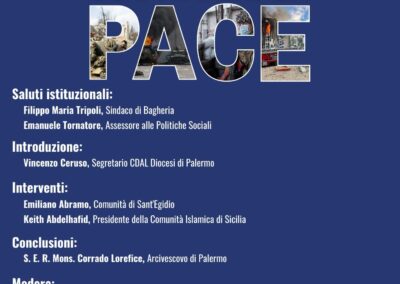
‘Building Peace’: event at the Villa Butera Theatre in Bagheria attended by of the Archbishop of Palermo Lorefice and Keith Abdelhafid president of the Islamic Community of Sicily – Thursday 6 March 2025
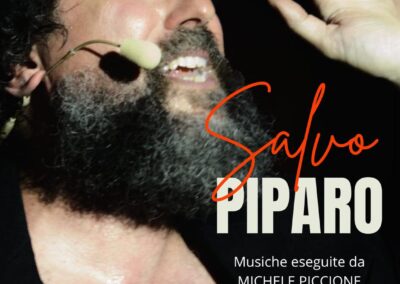
Bagheria celebrates with the show sponsored by the municipality ‘Poets and Heroes’ with Salvo Piparo and Michele Piccione – Sunday 9 March 2025

Carnival 2025 in Bagheria: children protagonists with the ‘Carnevale dei Piccoli’ (Children’s Carnival) – Monday 03 March 2025
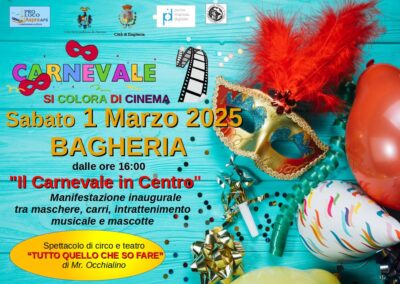
The curtain rises on Carnival 2025 in Bagheria with ‘Il Carnevale in Centro’ (Carnival in the Centre) – Saturday 01 March 2025
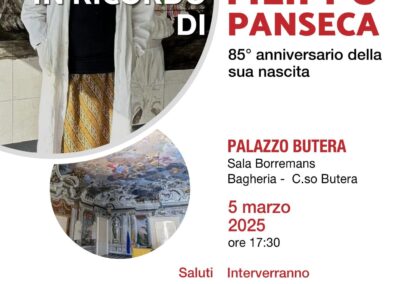
85th Anniversary of Filippo Panseca’s Birth: Special Event at Villa Butera – Wednesday, March 5, 2025
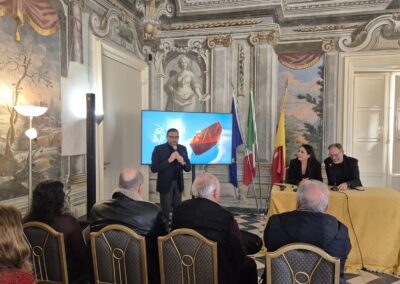
Presented in Bagheria the ‘Baarìa Film Festival’, dedicated to Insular Cinema. The mayor of Bagheria: ‘An important occasion to valorise our territory’ – Saturday 22 February 2025
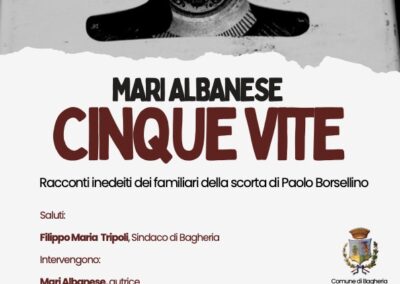
At the Don Milani Centre the presentation of the book ‘Five Lives’ by Mari Albanese – Saturday 22 February 2025
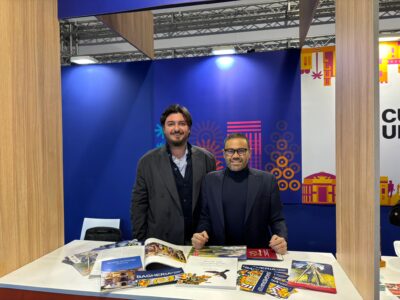
Sicily in the spotlight at the Milan International Tourism Exchange. Bagheria is also present! – Monday 10 February 2025

The Saint Ignatius of Loyola Choir with its charity concert at Villa Ramacca – Friday 14 February 2025
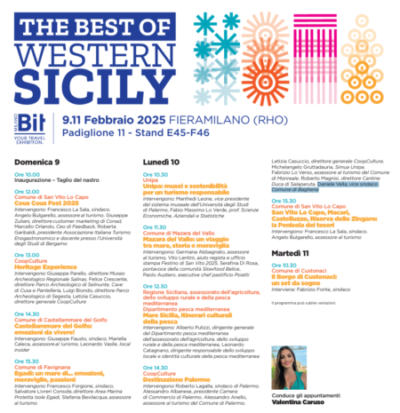
BIT 2025 ‘International Tourism Exchange’: Bagheria participates in a panel to promote local tourism – From 09 to 11 February 2025
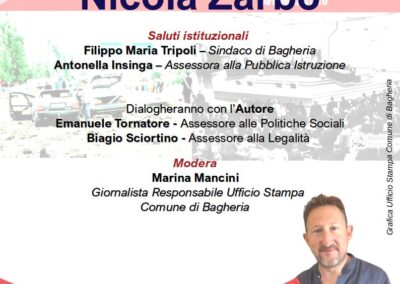
Mafia and State: a dialogue at Villa Butera with Nicola Zarbo, author of “History of Cosa Nostra in Sicily” and “The maxiprocess, the turncoats and the State-Mafia negotiation” – Wednesday, 05 February 2025
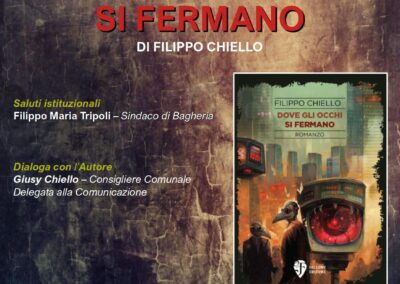
A journey into the dystopian future at Villa Butera: Filippo Chiello presents ‘Where the eyes stop’ – Saturday 08 February 2025
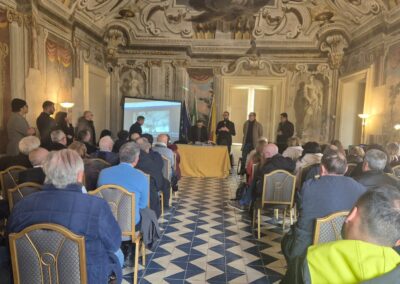
Tourism: Large attendance for the meeting organised to discuss issues related to the tourist tax and learn about the new IT platform for management – Thursday 16 January 2025
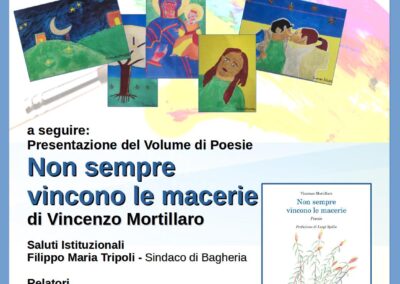
The art and poetry of Vincenzo Mortillaro: exhibition and presentation of the volume of poems – From 02 to 09 February 2025

Bagheria: public meeting with Bagheria accommodation facilities to listen to the operators and discuss the tourist tax – Thursday 16 January 2025
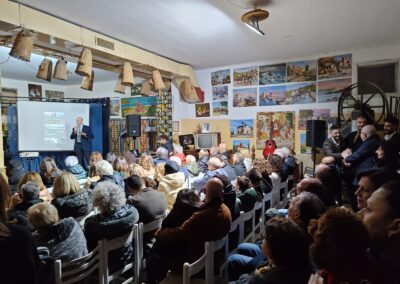
Success for “Aspra Mundi”: Andrea Lorenzini’s documentary a journey into the heart of Aspra – Saturday 28 December 2024

Viola da gamba concert with Nereo Luigi Dani in Bagheria: A musical journey from the Renaissance to Classicism – Monday 30 December 2024

Solidarity exhibition “Christmas Art For Children” – From 22 to 29 December 2024 at Villa Aragona Cutò

Christmas events calendar: @Loda club by Danilo Lo Iacono and Afrostatic present the XMAS Christmas party – Friday 27 December 2024
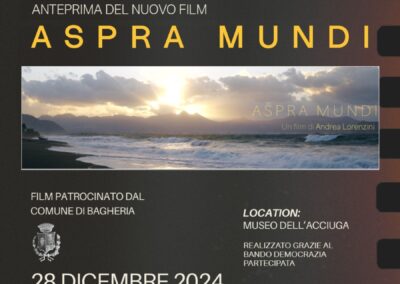
At the Anchovy Museum, a preview of the documentary ‘Aspra Mundi’ by Andrea Lorenzini with funding from Democrazia Partecipata – Saturday 28 December 2024
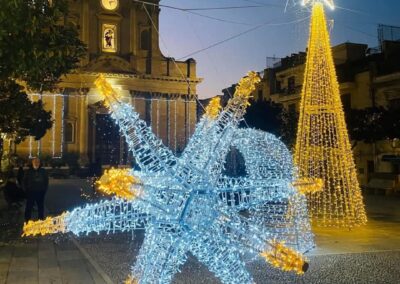
Bagheria: a Christmas full of emotions with a busy calendar of events. Here are those from 25 to 31 December 2024
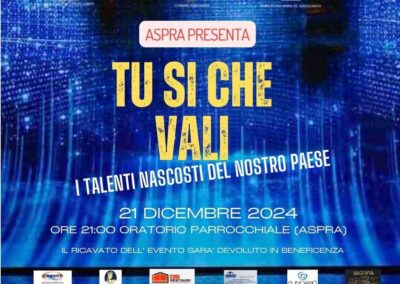
Christmas events: “You are worth it – The hidden talents of our country” – Saturday 21 December in Aspra
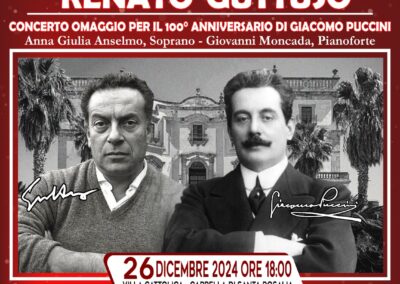
City of Bagheria Concert Season: Bagheria celebrates Puccini’s centenary with an exceptional concert on Renato Guttuso’s birthday – Thursday 26 December 2024
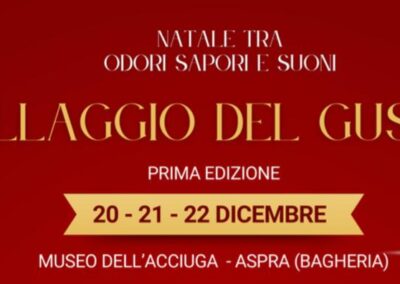
At the Museo dell’Acciuga in Aspra the Taste Village, the magic of Christmas amidst smells, tastes and sounds – From 20 to 22 December 2024
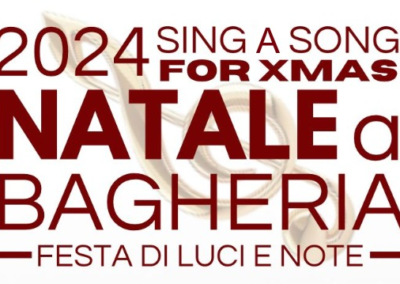
Bagheria lights up more and more at the Festa: here are the Christmas events for the week from 17 to 24 December 2024
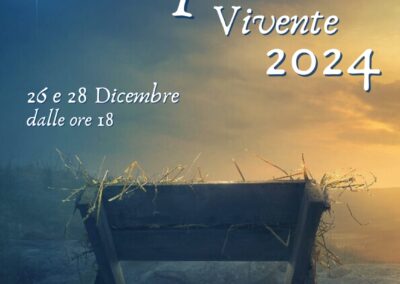
In Bagheria the Living Nativity Scene of the Maria SS Parish. of Carmel – Visitable from 26 to 28 December 2024
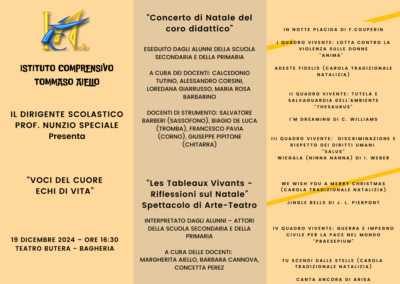
Tommaso Aiello Comprehensive Institute: Christmas Show “Voices of the Heart, Echoes of Life” – On 19 December 2024, at 4.30 pm at Palazzo Butera

Christmas Events 2024: Santa Claus’ House will be inaugurated in Butifar square on Saturday 14 December – Visitable from 14 to 24 December 2024
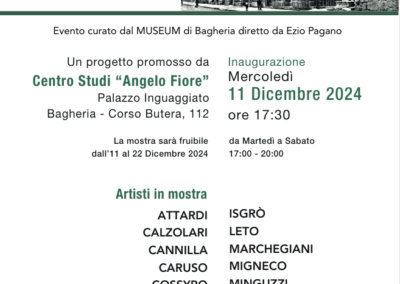
Palazzo Inguaggiato hosts the ‘Eclectic’ exhibition curated by Ezio Pagano Museum – Open from 11 to 22 December 2024
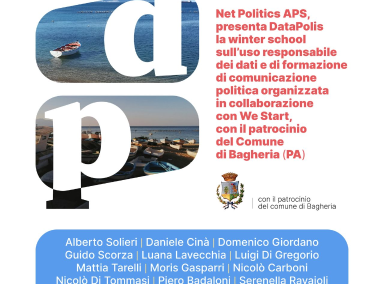
Data and communication: the NetPolitics Winter School in Bagheria. Lessons, workshop meetings with professors and experts – From 12 to 15 December 2024
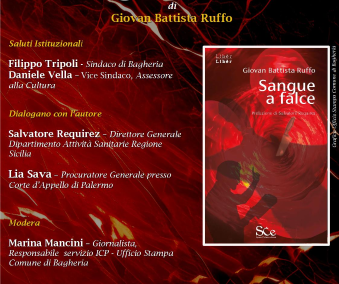
Bagheria hosts the presentation of “Blood to Sickle”: a novel that touches the heart – Wednesday, December 11, 2024, at 5:30 p.m.
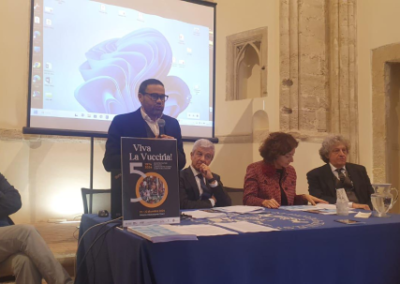
Celebrations for the 50th anniversary of Renato Guttuso’s Vucciria. The new face of the UniPa Museums. The inauguration of the staircase designed by Carlo Scarpa – From 19 to 22 December 2024
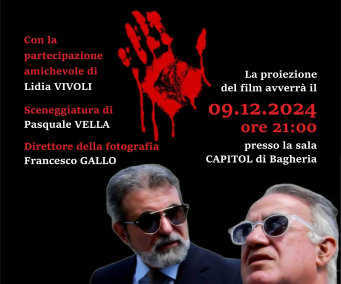
The municipality patronises the screening of ‘L’Imprenditore’. Film against pizzo by Pasquale Vella – Monday 09 December 2024, at 21:00, at the Capitol cinema
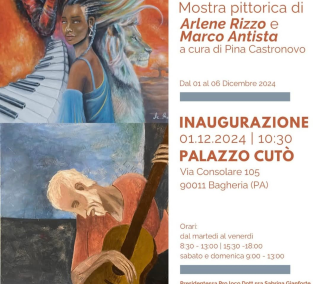
The exhibition “Color Experiences” by Arlene Rizzo opens edited by Pina Castronovo of Pro Loco Genius Loci – Sunday 01 December 2024
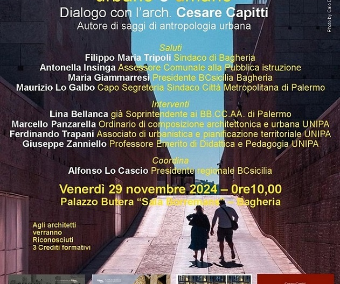
Bagheria, “Architecture at the service of human space”: dialogue with Cesare Capitti, author of essays on urban anthropology – Friday 29 November 2024
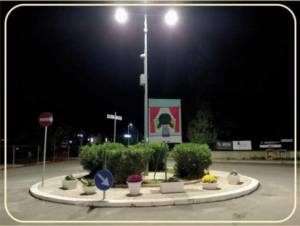
Bagheria pays homage to Ignazio Buttitta: the roundabout in via Sant’Ignazio di Loyola flourishes, curated by Carto Aliotta – Saturday 30 November 2024
Bagheria is approaching Christmas: here are the next events of the week of the rich program of events!
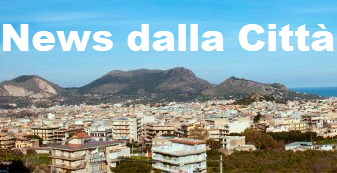
The Sfincione Fest among the successful food and wine events in Sicily: three days over 130,000 visitors in Bagheria!
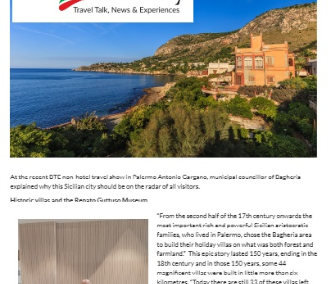
Bagheria: A hidden pearl revealed to BTE in an interview with “Italiabsolutely” by the managing director Onofrio Antonello Gargano

Sfincione Fest in Bagheria: all the information for arriving and parking – Scheduled from 22 to 24 November 2024

“Sfincione Fest di Bagheria”, the most delicious event of the year: Kitchen show by Andy Luotto, Giusina and the starred Tony Lo Coco. In the evening the music of Cugini di Campagna and Sugarfree – From 22 to 24 November 2024
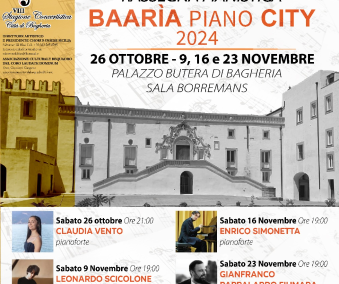
Concert season: “Baaria Piano City” – Piano review at Villa Butera. Last appointment Saturday 23 November 2024
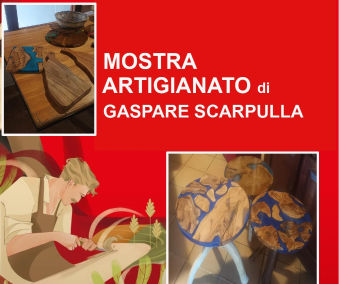
Gaspare Scarpulla craft exhibition at villa San Cataldo – Can be visited from November 26, 2024 to December 8, 2024
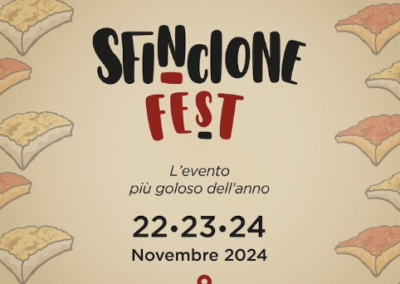
Bagheria is preparing to have its excellence tasted at the Sfincione Fest: Bagheria products will be on display at the city’s booth – November 22 to 24, 2024
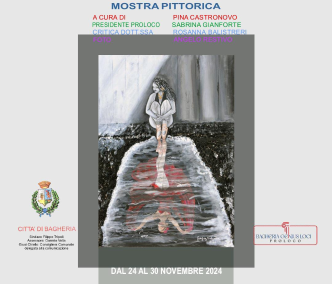
“Emotions”: Personal exhibition by Grazia D’Agata at Palazzo Cutò – Visitable from 24 to 30 November 2024
Bagheria lights up: a Christmas full of events and initiatives. The program was presented at a press conference – November 13, 2024
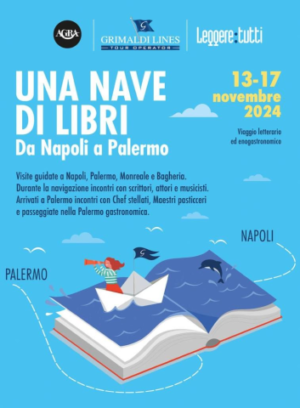
Bagheria protagonist of the “Ship of Books”: a journey through culture, art and taste – November 15, 2024
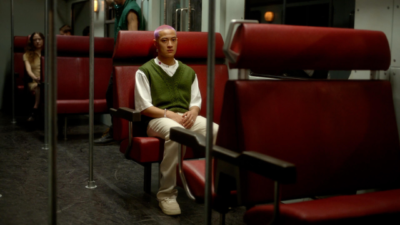
Le Notti d’Oro’ (The Golden Nights) returns to Bagheria, the festival of the best short films of the year awarded by Film Academies around the world – From 20 and 21 November 2024

The Sfincione Fest in Bagheria returns: three days of show cooking, tastings and performances – 22 to 24 November 2024
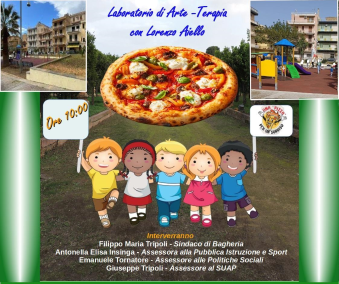
‘Una Pizza per Un Sorriso’ changes location. It will take place in piazzetta Butera – Sunday 10 November 2024

Golden Smartphone Award 2024: from tomorrow you can vote for the ‘Bagheria Attiva’ project – From 08 to 20 November 2024
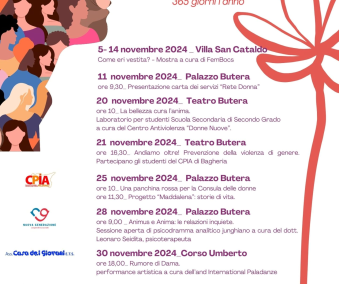
‘Beauty heals the soul’: Series of events to celebrate the month against Violence Against Women – From 05 to 30 November 2024

Last hours to register for B2B meetings for accommodation facilities at the Borsa del Turismo Extralberghiero (BTE)
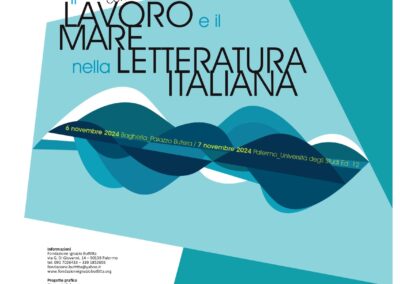
Study Conference: Work and the Sea in Italian Literature at Villa Butera – Wednesday, November 6, 2024
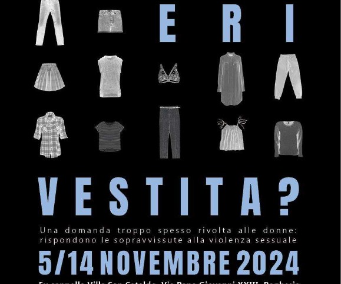
Opening of the exhibition: “How were you dressed?” at Villa San Cataldo – On view from November 05 to 14, 2024
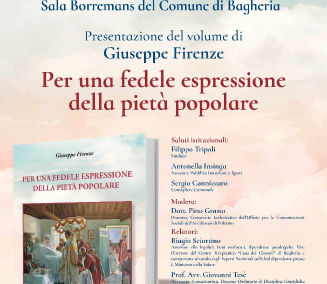
Presentation of the book: “For a faithful expression of popular piety” by Joseph Florence – Sunday, Nov. 3, at Villa Butera
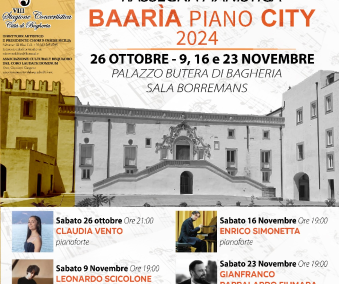
Concert Season City of Bagheria, starts the Piano Review “BAHARIA PIANO CITY” – Saturday, October 26 at Villa Butera
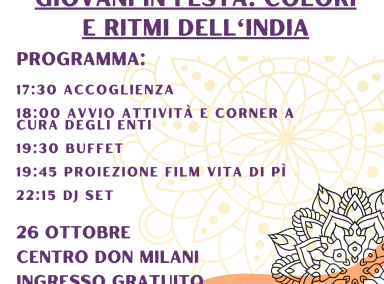
“Young people celebrating: Colors and rhythms of India” at the Don Milani Centre – Saturday 26 October 2024
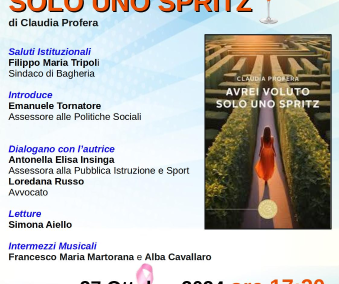
“I Only Wanted a Spritz” is presented at Villa Butera: An intimate journey through the pages of a book about life, love and resilience by Claudia Profera – Sunday, October 27, 2024

Bagheria protagonist at the Borsa del Turismo Extralberghiero – An informational meeting on October 22
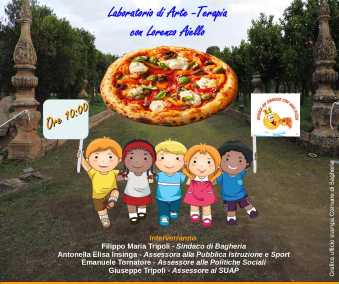
“A Pizza for a Smile” at Villa San Cataldo: An Art Therapy Workshop that Unites Everyone – Sunday, Nov. 10, 2024

Bagheria prepares for a weekend of engines with the final of the ACI Circuiti Cittadini National Trophy – October 26 and 27, 2024
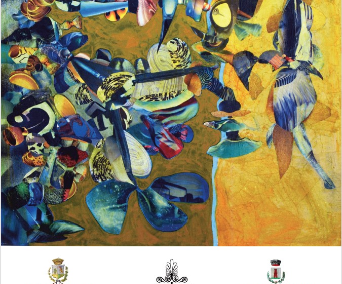
Opening of the exhibition “C’Arte d’arte” by Nino Raia at Villa San Cataldo – Sunday, Oct. 20, at 6 p.m.
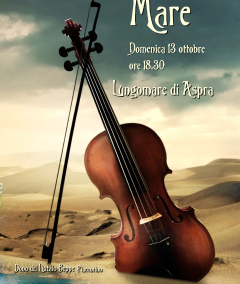
The seaside hamlet of Aspra is enriched with a new work of art: “Il Violino Sul Mare” sculpture by master luthier Beppe Piacentino is inaugurated – Sunday, October 13, 2024
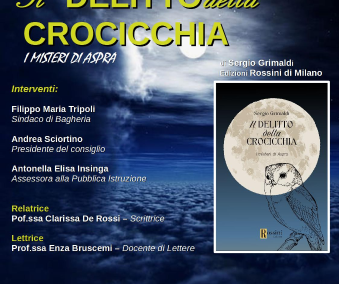
Book presentation: “Crime of the Crossroads – the mysteries of Aspra” at Villa San Cataldo – Saturday, October 26, 2024
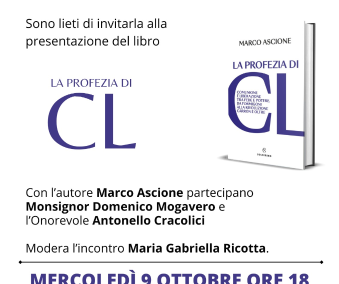
In the presence of the author presentation of the book “The Prophecy of CL” by Marco Ascione: discussion between Monsignor Domenico Mogavero and the president of the commission Regional Anti-Mafia Committee Antonello Cracolici – Wednesday, Oct. 09 at Villa Butera
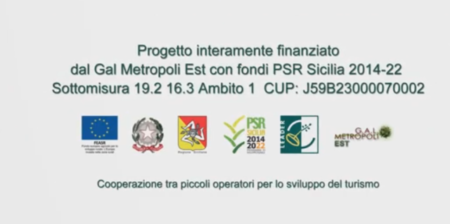
Bagheria celebrates its identity with a journey of discovery through the Baaria Plain with the presentation of the video of the project to promote and develop the tourist-cultural-gastronomic circuit of the Plain of Baaria – Monday, October 7, 2024
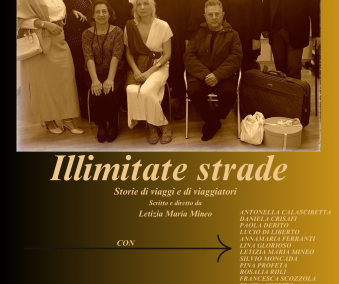
‘Unlimited Roads – Stories of journeys and travellers’ theatrical performance at the theatre of villa Butera – Saturday 19 October 2024
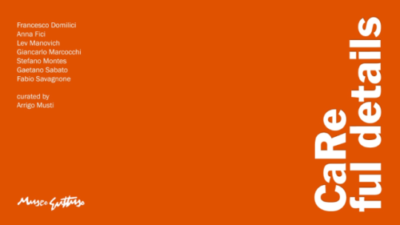
Bagheria goes international with “Caring, Taking Care. A weekend dedicated to art and caring – The exhibition opening and press conference will be held on Thursday, Oct. 3, 2024
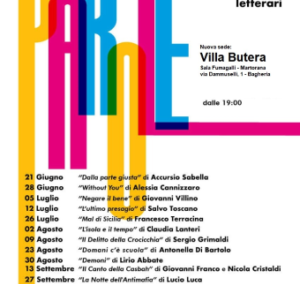
“Tramonti di parole”: at Villa Butera “The Night of the Anti-Mafia” by Lucio Luca – Friday 27 September 2024
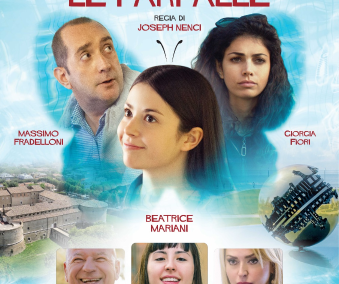
“Ancora Volano Le Farfalle” arrives in Bagheria: a story of life and inclusion. Film event, sponsored by the Municipality of Bagheria – Tuesday 8 October, at 9.00 pm
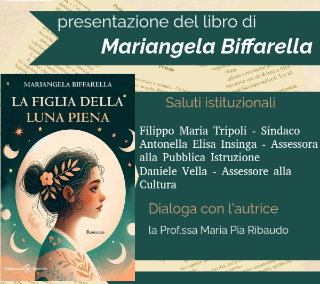
In Bagheria the presentation of the novel “The daughter of the full moon” by Mariangela Biffarella – Saturday 5 October at 6pm
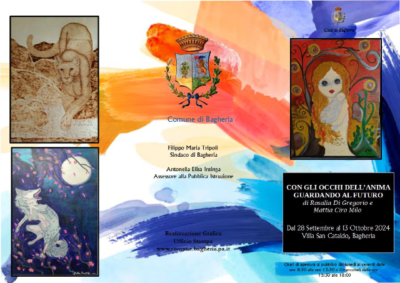
The exhibition “With the eyes of the soul looking to the future” opens by Rosalia Di Gregorio and Mattia Ciro Milo – Saturday 28 September 2024

“CAREful Details” Photography and Visual Art Exhibition curated by Arrigo Musti with the patronage of the Municipality of Bagheria. From 4 October to 4 December 2024 at the Guttuso Museum in Villa Cattolica

Motorcyclists for solidarity: the Bariota Meeting of the CC Motorday – Palermo Section – Saturday, September 21, 2024
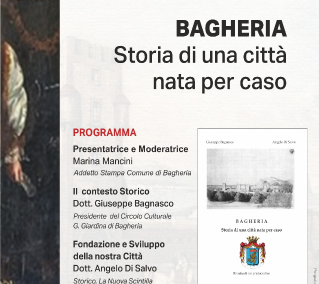
A journey through history with “Bagheria, History of a city born by chance.” The book by Giuseppe Bagnasco and Angelo Di Salvo is presented at the Villa Butera theater – Sunday, September 22, 2024
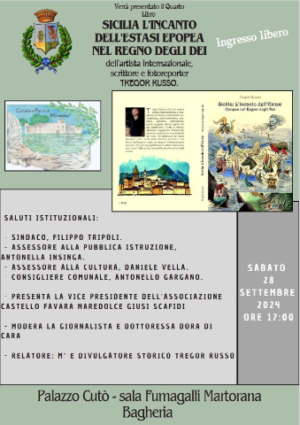
Bagheria celebrates the most authentic Sicily with Tregor Russo’s book – Saturday 28 September 2024, at Villa Aragona Cutò
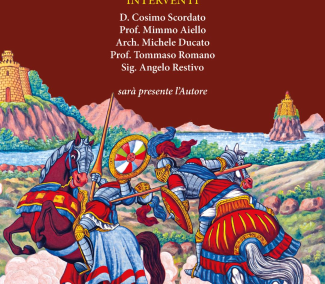
Bagheria celebrates the history of the “Sicilian Cart” with Lisa Sciortino’s book – Wednesday, September 25, at 6 p.m., at Villa Cattolica
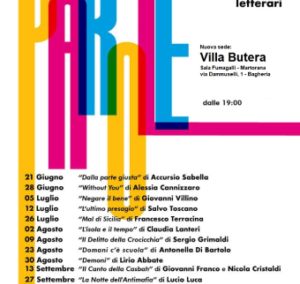
“Sunsets of Words”: Gaetano Perricone with his book ”The Last Game” – Friday, Sept. 20, at Villa Butera, Bagheria

Adverse weather conditions: events of the feast of Aspra’s patron saint are postponed to Sunday, Sept. 22, 2024

Bagheria celebrates the beauty of Sicilian women with exhibition by Carlo Giammarresi at Villa San Cataldo – Sunday, September 15, 2024 at 6:00 p.m.
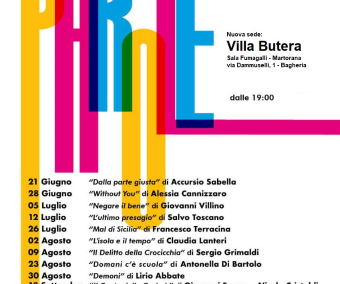
“Tramonti di parole” at Villa Butera: “The Song of the Casbah” by Giovanni Franco and Nicola Cristaldi – Friday, September 13, 2024

At the Guttuso museum “The rules of the game” by Massimo Kaufmann. From 15 September to 15 November 2024 at Villa Cattolica
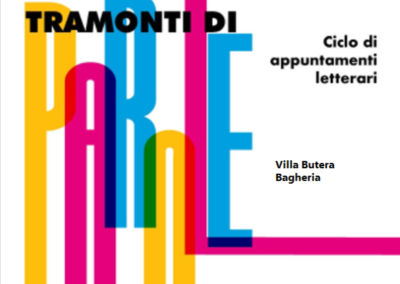
“Tramonti di parole”: The review changes location. The events in Bagheria, at villa Butera! – Friday, September 13, 2024
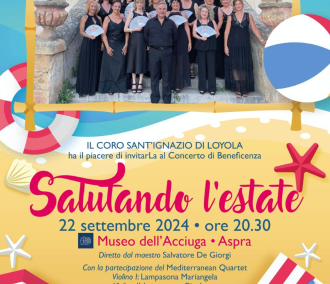
“Greeting the Summer” at the Anchovy Museum concert by the St. Ignatius of Loyola choir conducted by Maestro Salvatore De Giorgi – Sunday, September 22 at 8:30 p.m.
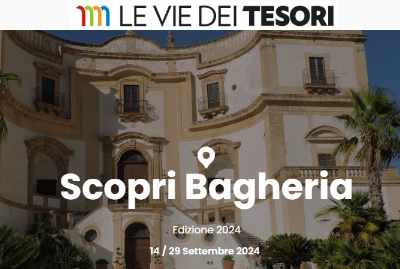
Bagheria prepares to host the 8th edition of “The Ways of Treasures”. Press Conference Monday, September 09, 2024
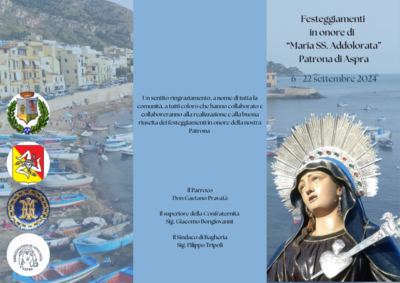
Aspra is preparing to celebrate its patron saint. A rich program of religious, musical and entertainment events – Sept. 08 to 15, 2024
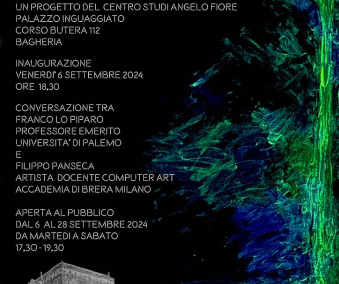
Exhibition opening: “Energy Reveals Post-Anthropocene Bionic Art” by Filippo Panseca – On view from September 06 to 28, 2024
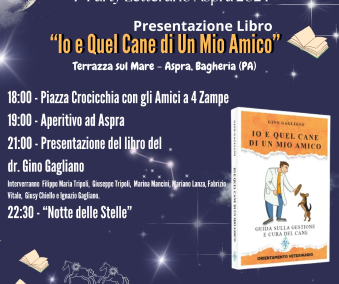
Aspra lights up for St. Lawrence: First “Night of Stars” literary party, space for our four-legged friends, with focus on Leishmaniasis and presentation of the book by veterinarian Gino Gagliano – Saturday, Aug. 10, 2024
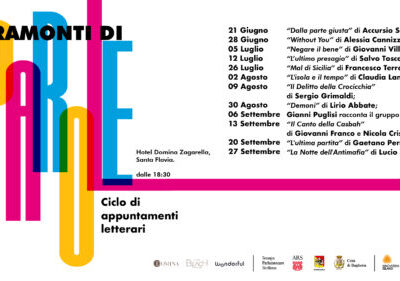
Tramonti di parole: “Il Delitto della Crocicchia” of Aspra by Sergio Grimaldi – Friday, Aug. 09 at the Domina-Zagarella
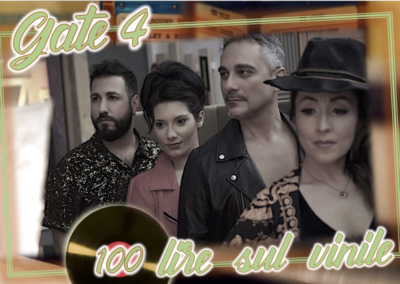
Bagheria is tinged with retro music: the Gate 4 bring to the stage “100 lira on vinyl” and opens with the exhibition “Freestyle art fusion in Butera Palace” – Thursday, August 08, 2024

Feast of St. Joseph: Closes the feast of the patron saint today, showman Nino Frassica performs in the square – Monday, August 05, 2024
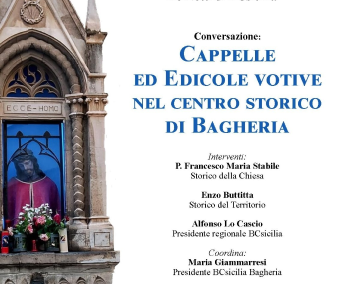
The Nights of BCsicilia: conversation on chapels and votive aedicules in the historic center of Bagheria – Friday 02 August 2024 at 9.00 pm
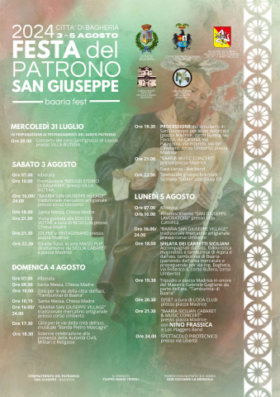
Baarìa Fest 2024: Presented the program of the festivities in honor of Bagheria’s patron saint, St. Joseph. Star of the last day the showman Nino Frassica – Wednesday, July 31, 2024
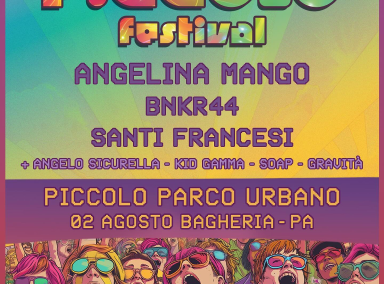
In Bagheria 2nd edition of “PICCOLO FESTIVAL”: Angelina Mango, only date in Sicily, BNKR44 and the hard-pop duo Santi Francesi. Opening acts Angelo Sicurella, Kid Gamma and Soap – Friday, August 02, 2024, at the Little Urban Park.
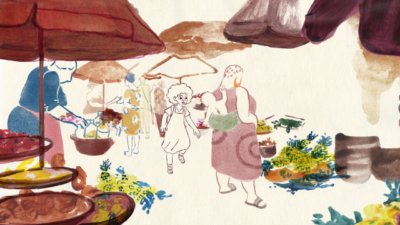
Turning point for the 10th edition of Animaphix – New Contemporary Languages Film Festival – Friday, July 26 at 6 p.m.
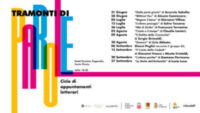
Fifth appointment with “Tramonti di parole”: “Mal di Sicilia” by Francesco Terracina Friday, July 26 at the Domina-Zagarella
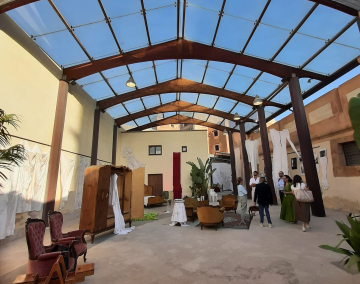
Tenth edition of Animaphix Film Festival. A rich program that also includes exhibitions and video installations – Visitable from July 22 to 28, 2024
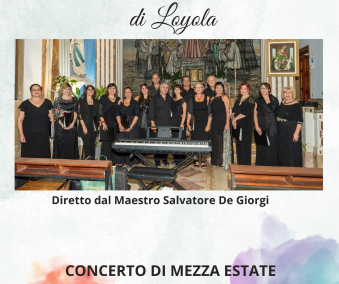
Midsummer concert by the St. Ignatius of Loyola choir at Villa Butera – Wednesday, July 31 at 8:30 p.m.

The season of events and concerts at Bagheria’s Little Urban Park kicks off. The mayor of Bagheria: “Bagheria more and more musical hub for young people.” – Starting on Saturday, July 20, 2024
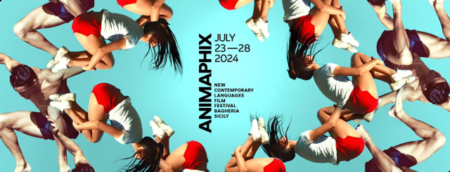
Kicking off on Monday, July 22 is the 10th Animaphix. New Contemporary Languages Film Festival – Scheduled for July 22 to 28, 2024
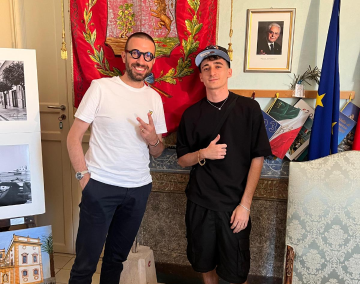
Premiering at Villa Butera, “Una Notte” the new single by producer Achille G – ft. VillaBanks and Baby K. – Thursday, July 18 at 10:30 a.m.
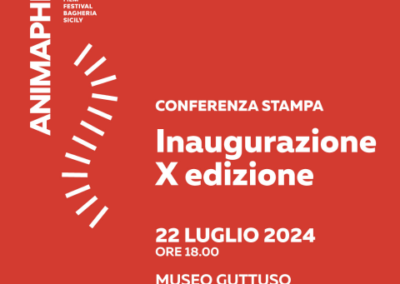
Opens its doors with a concert by “Giovanni Sollima” Animaphix “New Contemporary Languages Film Festival” – Monday, July 22, 2024 at Villa Cattolica
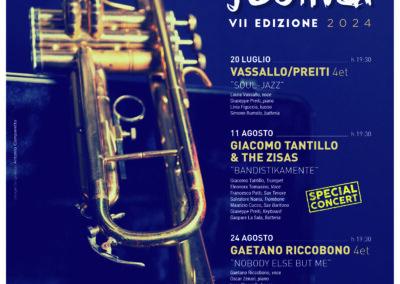
Seventh Edition of the “Blue Arch Jazz Festival”. Music at Sunset – It will start on July 20 and end on August 31, 2024

‘Tramonti di parole’, literary review sponsored by the Municipality of Bagheria: at the Domina-Zagarella ‘L’ultimo presagio’ by Salvo Toscano – Friday 12 July 2024
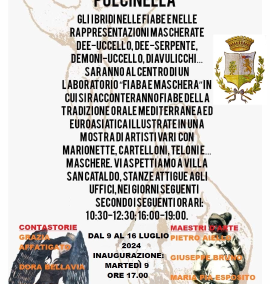
“From Virgin – Swan to Punchinello”. Fairy tale workshops and exhibition of various artists at Villa San Cataldo – July 09 to 16, 2024
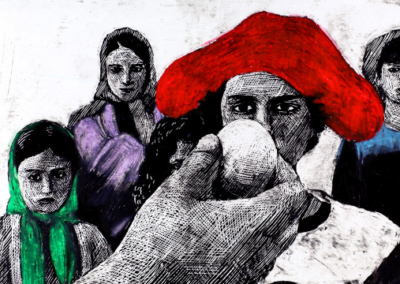
A Sicilian premiere arrives at the 10th edition of Animaphix – Film Festival “Invelle” the long-awaited feature film by award-winning animation director Simone Massi – Tuesday, July 23, 2024 at Villa Cattolica

“Sunsets of Words” literary review sponsored by the City of Bagheria: “Denying the Good” by Giovanni Villino – Friday, July 5, 2024 at the Domina-Zagarella
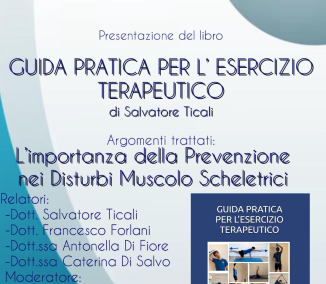
Presentation of the book: “Practical guide for therapeutic exercise” by Salvatore Ticali at villa Butera – Saturday, July 13, 2024
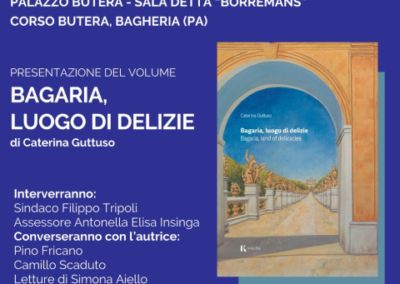
“Bagaria place of Delights” the book by Caterina Guttuso is presented at villa Butera – Saturday, July 6, 2024
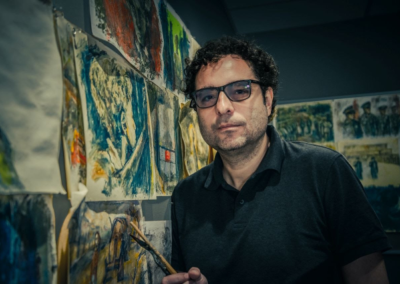
Cellist Giovanni Sollima opens the 10th edition of Animaphix New Contemporary Languages – Film Festival with “Sonámbulo” cine-concert inspired by the works of director and artist Theodore Ushev, who will receive the Guttuso Prize 2024 – Starting July 22-28, 2024 at Villa Cattolica.
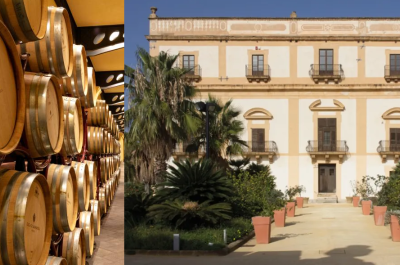
Duca di Salaparuta, 200 years to celebrate with Bagheria between art and wine. A documentary to celebrate the beauty of Sicily – Thursday, June 27, 2024 at Villa Cattolica
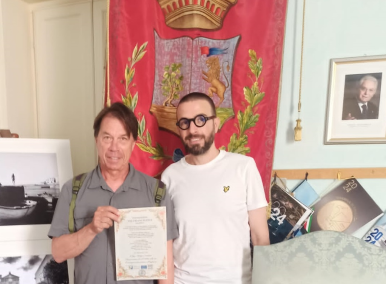
Francigena Paths in Bagheria: a pilgrim at Villa Butera meets with Mayor Tripoli – Wednesday, June 19, 2024

“Sunsets of Words” Author meetings at the Domina-Zagarella. Among the sponsors is the City of Bagheria – Starting June 21 through Sept. 27, 2024
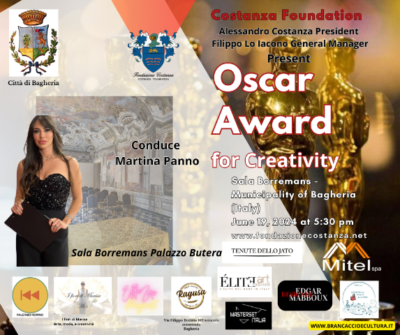
Costanza Foundation awards the prestigious Oscar for creativity: Bagheria international scene! Wednesday, June 19, 2024 at Palazzo Butera
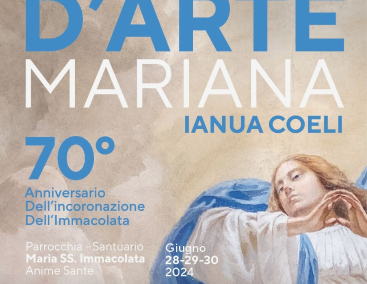
Marian art exhibition “Ianua coeli” at the Shrine of Mary Most Holy Immaculate – Can be visited from June 28 to 30, 2024
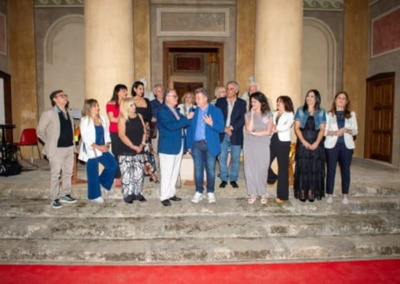
Works by “Artists Of June 25” featured at the Charterhouse until July 5 – Can be viewed at the Toy and Wax Museum
